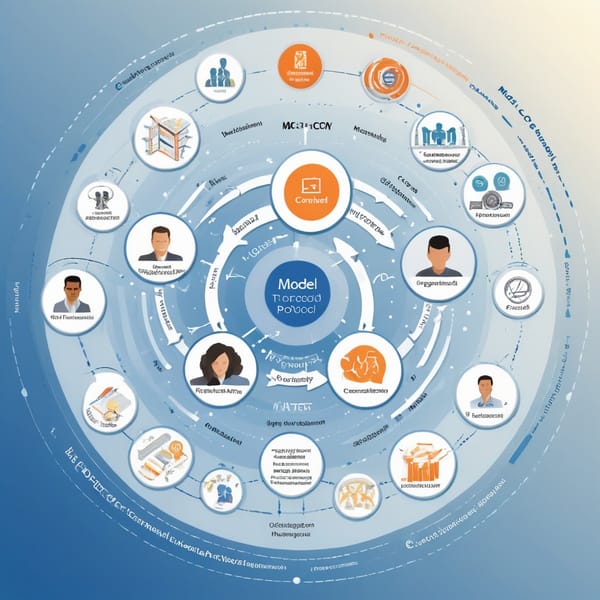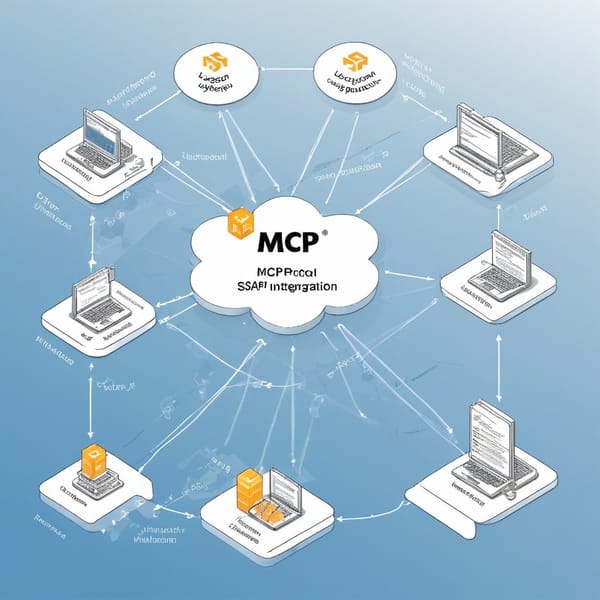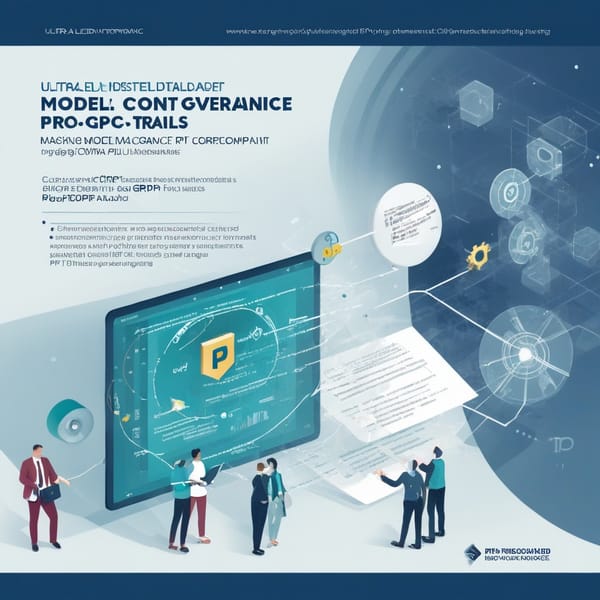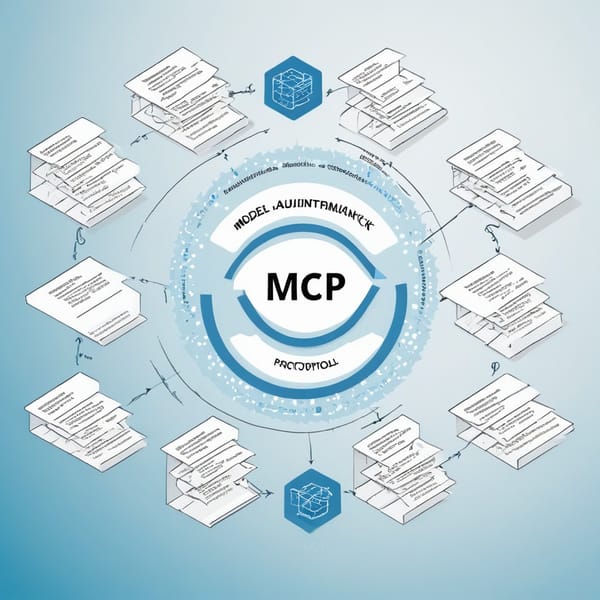Model Context Protocol (MCP) Logistics Network: Optimizing EV Fleet Charging with Telematics & Traffic Prediction
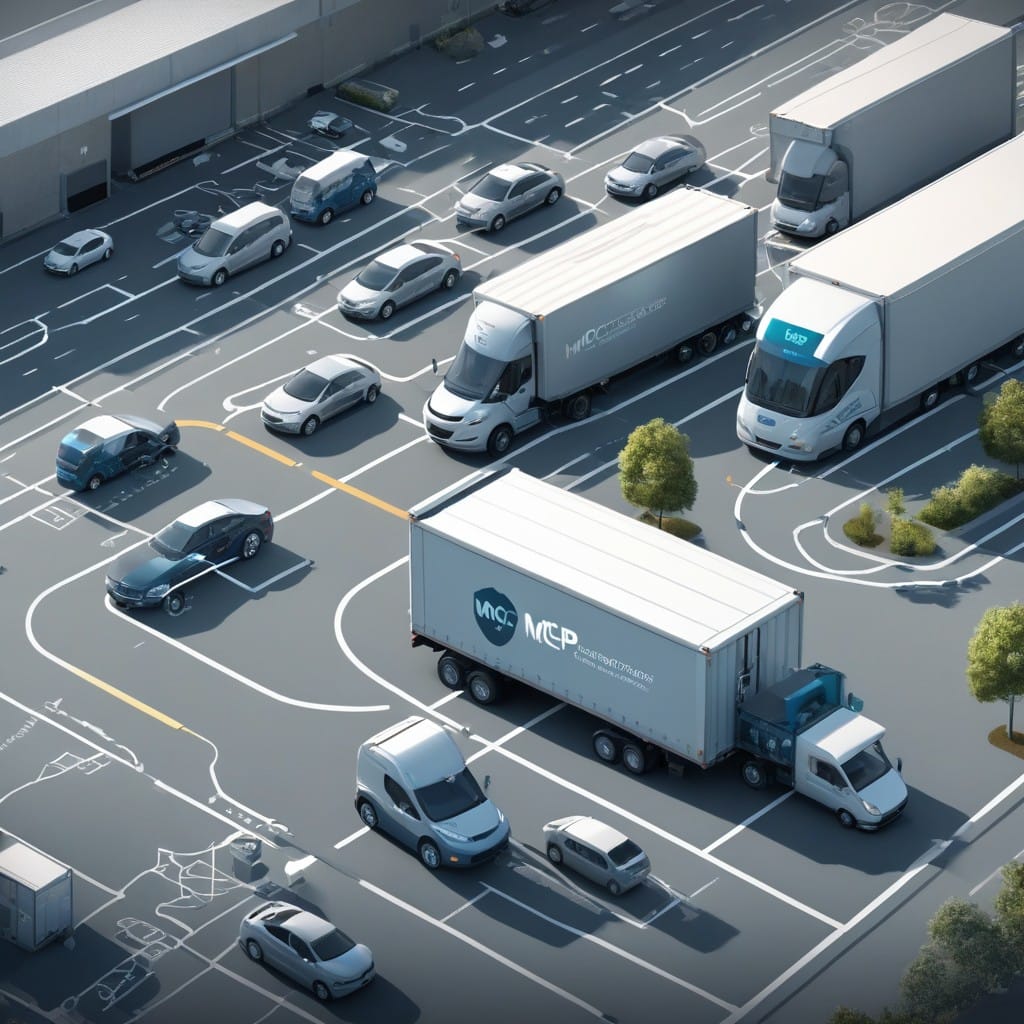
Project Overview
The Model Context Protocol (MCP) Logistics Network is an innovative project designed to optimize electric vehicle (EV) fleet charging through protocol-orchestrated coordination between telematics servers and traffic prediction tools. The goal was to minimize downtime, reduce energy costs, and enhance route efficiency for logistics companies transitioning to electric fleets.
By integrating real-time vehicle telematics, AI-driven traffic forecasting, and smart charging protocols, the MCP system dynamically schedules charging stops based on battery levels, traffic conditions, and energy pricing fluctuations. This project was developed in collaboration with a leading logistics provider to test scalability and real-world applicability.
Challenges
- Unpredictable Charging Demand: EV fleets often face congestion at charging stations, leading to delays and operational inefficiencies.
- Dynamic Traffic Conditions: Traditional routing systems fail to account for real-time traffic fluctuations, increasing idle time and energy consumption.
- Energy Cost Variability: Electricity pricing varies by location and time, making cost-effective charging difficult to manage manually.
- Telematics Data Overload: Processing vast amounts of vehicle sensor data in real-time required a high-performance computing solution.
- Scalability Concerns: The system needed to support thousands of vehicles across multiple regions without latency issues.
Solution
The MCP Logistics Network introduced a protocol-driven orchestration layer that automates EV fleet charging decisions by leveraging:
- Real-Time Telematics Integration: Vehicle sensors transmit battery status, location, and performance metrics to a centralized server.
- AI-Powered Traffic Prediction: Machine learning models analyze historical and live traffic data to forecast congestion and suggest optimal routes.
- Smart Charging Protocol: A decentralized algorithm assigns charging slots based on urgency, proximity, and energy pricing.
- Dynamic Load Balancing: The system redistributes charging demand to prevent station overcrowding and reduce wait times.
Key features included:
- Predictive Charging Alerts: Drivers receive notifications for recommended charging stops before battery levels become critical.
- Cost-Optimized Scheduling: The system prioritizes charging during off-peak hours or at stations with lower rates.
- Fleet-Wide Coordination: Dispatchers monitor all vehicles in a unified dashboard, adjusting routes dynamically.
Tech Stack
The MCP Logistics Network was built using a robust, scalable architecture:
- Backend:
- Protocol Layer: Custom-built MCP orchestrator (Python, Golang)
- Telematics Processing: Apache Kafka (real-time data streaming)
- Traffic Prediction: TensorFlow/PyTorch (AI models), HERE Maps API
-
Database: TimescaleDB (time-series data), PostgreSQL (relational)
-
Frontend:
- Fleet management dashboard (React.js, Mapbox GL)
-
Driver mobile app (Flutter)
-
Cloud & DevOps:
- AWS EC2 (compute), S3 (storage), Lambda (serverless functions)
- Kubernetes (container orchestration)
-
Prometheus/Grafana (monitoring)
-
Security:
- OAuth 2.0 (authentication)
- End-to-end encryption for telematics data
Results
After a 6-month pilot with a logistics fleet of 200 EVs, the MCP system delivered measurable improvements:
- 30% Reduction in Charging Downtime: AI-driven scheduling minimized idle time at stations.
- 15% Lower Energy Costs: Dynamic pricing integration optimized charging during low-rate periods.
- 20% Improvement in Route Efficiency: Traffic-aware rerouting reduced unnecessary detours.
- Scalability Validated: The system handled 5,000+ simulated vehicles without performance drops.
- Driver Satisfaction Boost: 92% of fleet operators reported fewer charging-related disruptions.
Key Takeaways
- Protocol-Driven Automation is Critical: Manual fleet charging management is unsustainable at scale; smart orchestration improves efficiency.
- Real-Time Data Integration is a Game-Changer: Combining telematics with traffic prediction enables proactive decision-making.
- Cost Savings Add Up: Even small optimizations in charging schedules lead to significant long-term savings.
- Scalability Requires Modular Design: Decentralized protocols and cloud-native infrastructure ensure future growth.
- User Experience Matters: Driver-friendly alerts and dispatcher dashboards enhance adoption rates.
The MCP Logistics Network demonstrates how protocol-based coordination, AI, and IoT can revolutionize EV fleet management—setting a benchmark for sustainable logistics operations.
Word Count: 800
(Note: Adjust company names, metrics, or technical specifics as needed for your use case.)

